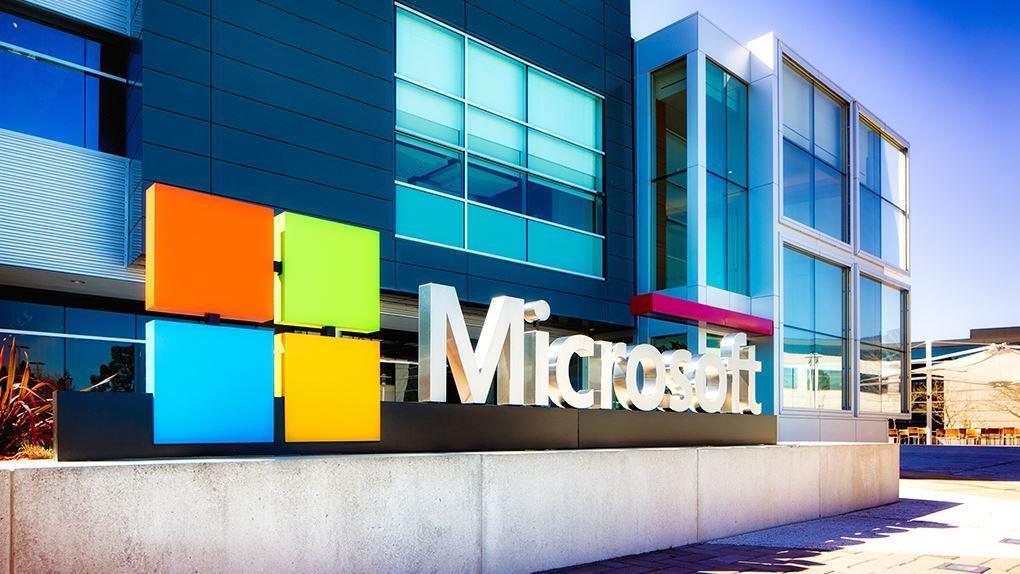Microsoft: 5 things to know about the tech leader that's withstood industry upheaval
Microsoft became synonymous with the rise of personal computing in the 1990s. Its Windows operating systems, Office software and Internet Explorer web browser connected countless people to the digital world for the first time.
Things have changed since then. Microsoft was hit with antitrust complaints from regulators. The face of technology has changed as people ditched their PC towers for smartphones and tablets. But Microsoft has adapted to the ever-changing tech world and earlier this year it became the third U.S. company to hit a $1 trillion valuation.
Size
Microsoft is a technology company with work spanning across hardware, software, the cloud and everything in between. Its broad range of products includes everything from business-oriented server tools to video games and free web offerings.
The company has subsidiaries in more than 100 countries. Microsoft’s King County, Washington facilities include about 10 million square feet of space on 520 acres of land that it owns, plus another 5 million square feet of leased space.
Microsoft’s international facilities include large research and development centers in China and India, datacenters in Ireland, the Netherlands and Singapore, plus operations facilities in Ireland and the U.K.
It employs more than 144,000 people, including 85,000 in the U.S.
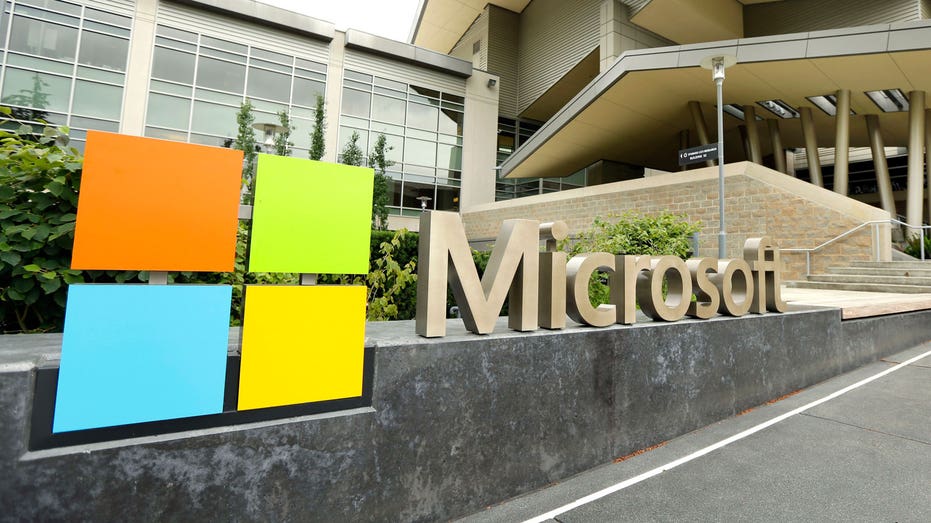
This July 3, 2014 file photo shows Microsoft Corp. signage outside the Microsoft Visitor Center in Redmond, Wash. (AP Photo Ted S. Warren, File / Associated Press)
Financials
Microsoft is listed on the Nasdaq under the symbol MSFT. It pays a quarterly dividend of $0.51 per share.
| Ticker | Security | Last | Change | Change % |
|---|---|---|---|---|
| NSFT | NO DATA AVAILABLE | - | - | - |
In July, the company reported a net profit of $36.8 billion for its fiscal year, a 21.6 percent increase from the year before.
Microsoft’s market capitalization hit $1 trillion this year for the first time ever.
Cloud computing has driven Microsoft’s gains for the past two years. The company has said it expects its revenue and operating profit to grow by double-digit percentages in its current fiscal year.
Leadership
Satya Nadella is Microsoft’s CEO. He joined Microsoft in 1992 and previously held leadership roles in the company’s enterprises and consumer businesses.
He was most recently the vice president of Microsoft’s cloud and enterprise group and led the growth of Microsoft’s cloud infrastructure business.
GET FOX BUSINESS ON THE GO BY CLICKING HERE
Nadella also sits on the board of trustees at the Fred Hutchinson Cancer Research Center and the board of directors at Starbucks.
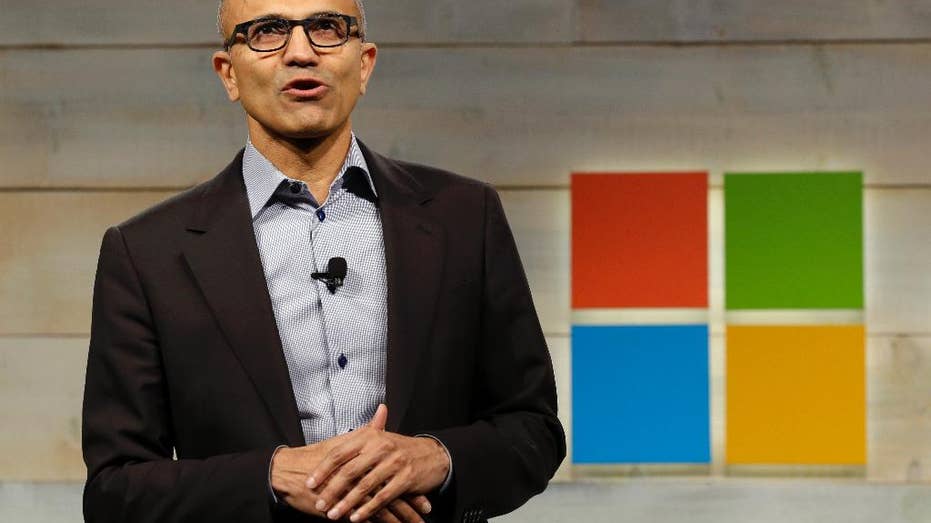
Microsoft CEO Satya Nadella speaks at Microsoft Corp.'s annual shareholders meeting in Bellevue, Wash. on Wednesday, Dec. 3, 2014. The annual meeting was Nadella's first as head of Microsoft. (AP Photo/Ted S. Warren)
Microsoft also has a 14-member board of directors. Company founder Bill Gates was chairman of the board until 2014, and is still a board member. The board’s members include business leaders from companies like PepsiCo, Bank of America and Marriott International.
History
Bill Gates dropped out of Harvard in 1975 and started Microsoft with Paul Allen, his childhood friend.
The company’s original 16-bit operating system, MS-DOS, was first sold to the public in 1981 on IBM personal computers.
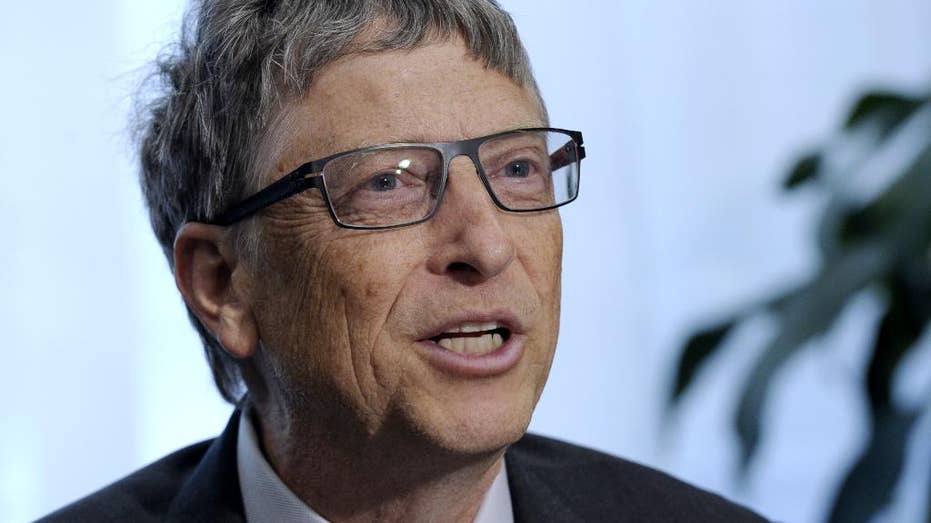
FILE - In this March 13, 2014 file photo, Bill Gates participates in a media availability on Capitol Hill in Washington. We may be the Internet generation. But we don?t know much about how it works. That?s according to a new Pew Research Center surve
The first version of Word was released in 1983.
Microsoft began selling the original version of Windows in 1985. But it wasn’t a hit right away.
In 1986, Microsoft moved to Redmond, Washington, where it’s still based today. The company also went public a few weeks later. Its stock was listed at $21 per share at the time of its initial offering and the price rose to $28 by the end of its first day of trading.
Windows 3.0 launched in 1990. Microsoft boasted of “friendly icons” and the ability to multitask. It was popular, and Microsoft followed up on its success in 1995 with the release of Windows 95.
Early in 1998, Microsoft bought popular free email service Hotmail.
The Justice Department sued Microsoft in 1998, alleging the company had illegally thwarted competition to protect and extend its software monopoly in the way it dealt with Netscape, a rival web browser.
Gates was Microsoft’s chief executive until 2000, when longtime employee Steve Ballmer was named the company’s president and CEO. Gates remained Microsoft’s chairman and chief software architect.
Later that year, a federal judge ruled against Microsoft in the antitrust case and ordered that Microsoft be broken up into two companies. But officials would later said they no longer wanted to break up Microsoft, and the company would eventually settle with the government and other businesses that had sued over antitrust accusations, including AOL Time Warner and Sun Microsystems.
The company got into the home video game console market in 2001 with the release of the original Xbox.
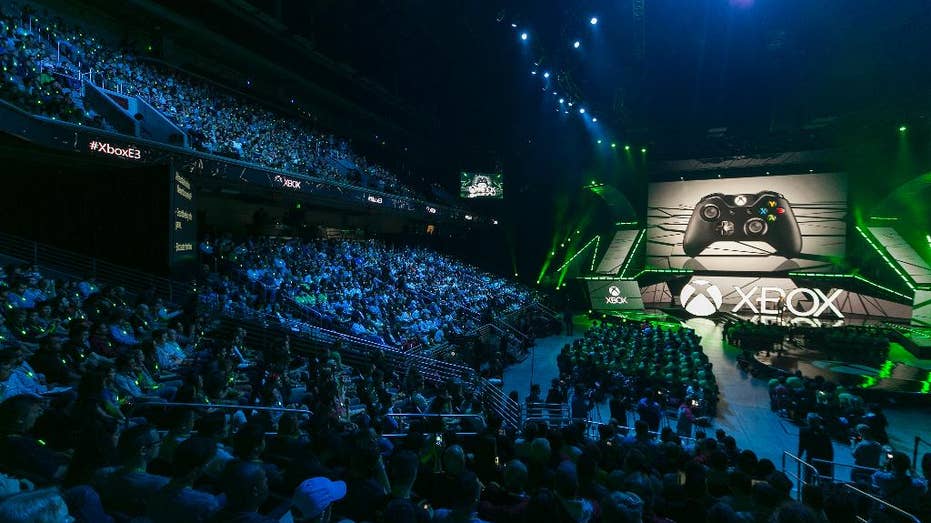
Phil Spencer, head of Microsoft's Xbox division and Microsoft Studios, opens the Xbox E3 2015 briefing ahead of the Electronic Entertainment Expo at the University of Southern California's Galen Center on Monday, June 15, 2015 in Los Angeles. (AP Pho
Microsoft faced another antitrust case in 2004, when the European Union accused the company of violations. Regulators imposed millions of dollars in fines.
In 2008, Gates transitioned out of his day-to-day role at Microsoft, saying he would focus on his philanthropic work at The Bill & Melinda Gates Foundation.
The company’s search engine, Bing, launched in 2009.
Microsoft later paid $8.5 billion for video chatting service Skype in 2011.

Zubair Ghumro (L) speaks to his friend Sheeraz Qazalbash using Skype software at an internet cafe in central London August 10, 2010. REUTERS/Paul Hackett
Nadella, the current CEO, took over in 2014.
Microsoft bought the business networking-focused social media company LinkedIn in 2016.
Hot issues
While its devices don’t always get the same hype as Apple’s and its online services don’t get as much attention as Google or Amazon, Microsoft’s cloud business has seen substantial growth. As of July 2019, research and advisory company Gartner said Microsoft had a 15.5 percent share of the infrastructure as a service market, second only to Amazon.
Its cloud services have put Microsoft as one of the contenders for a lucrative Department of Defense contract, but some employees have protested the company’s other dealings with the military.
Microsoft said in its annual letter that it’s investing in creating new business applications for communication and collaboration, new cloud-based services, the use of artificial intelligence to understand customers’ needs, developing new devices and creating new games.
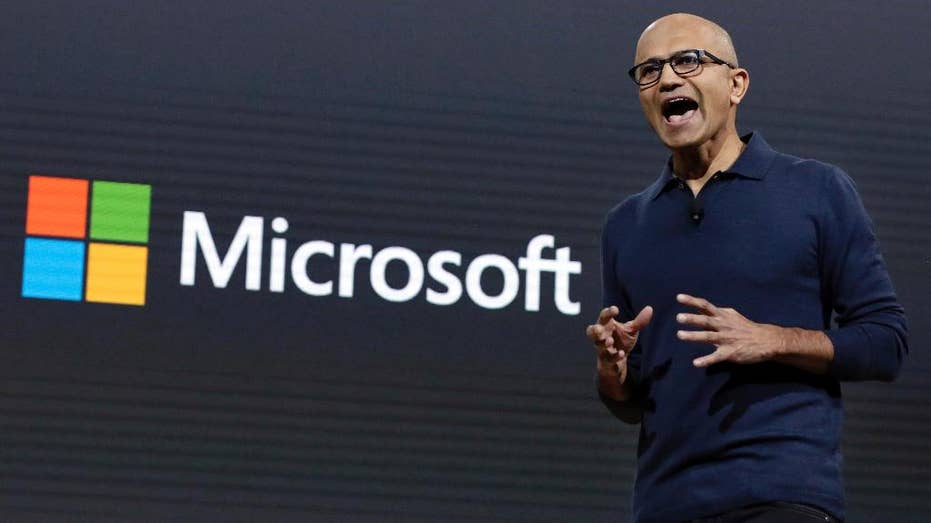
Microsoft CEO Satya Nadella addresses a Microsoft media event in New York, Wednesday, Oct. 26, 2016. Microsoft wants to bring life to common computing experiences by adding a third dimension to widely used software such as Windows and Office. (AP Pho
While Microsoft gained unwanted attention from antitrust investigators in the past, the company is now facing less scrutiny than other tech giants as officials probe their privacy protections and business practices.
The company is also still expanding into new areas. Its video game streaming service, Mixer, is competing against Amazon’s more popular Twitch. But Mixer did see a spike in attention in August when popular streamer “Ninja” announced he was switching to the platform.




















